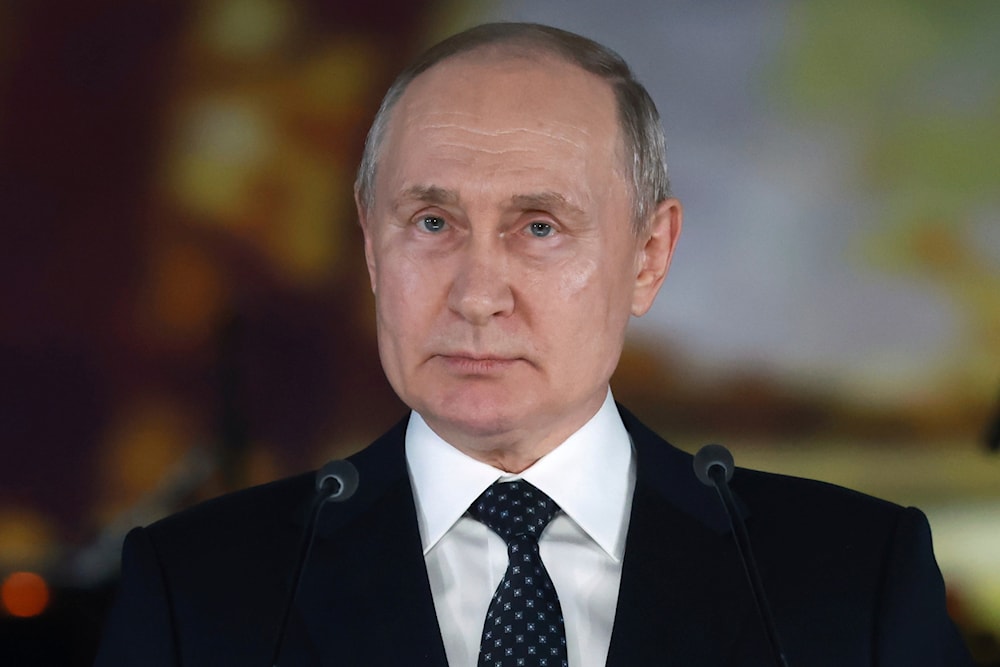EU pleads Russia not sanction them after sanctioning it for years
The EU is asking Russia not to sanction some of its assets despite it spending the last two years sanctioning it over Ukraine.
-

Russian President Vladimir Putin delivers a speech at Gazprom Arena stadium in St.Petersburg, Russia, January 27, 2024 (AP)
The European External Action Service (EEAS) called on Moscow on Saturday to overturn its decision regarding the transfer of subsidiaries belonging to German and Italian companies to Gazprom's management despite the EU wanting to use Russia's frozen funds as if they were their own.
Russian President Vladimir Putin signed a decree on Friday mandating the transfer of Russian subsidiaries of Italy's Ariston and Germany's BSH Hausgeraete to the temporary management of Gazprom Household Systems, a subsidiary of the Gazprom group.
Expressing the EU's ironic disapproval, the EEAS emphasized the necessity for Russia to reconsider its actions and engage in dialogue with the affected European companies.
"The European Union calls on Russia to reverse these measures and seek acceptable solutions with European companies targeted by them," the EEAS said in a statement.
This comes at a time when Russia's assets have been frozen by the EU and its economy sanctioned relentlessly for years.
Although Russia has been taking drastic countermeasures since the sanctions started befalling it, the EU possibly only realized that its sanctions were backfiring mere months ago.
At the close of February, European Union member nations united to endorse a 13th iteration of sanctions against Russia, marking a continued effort to attempt to contain Russia.
EU officials have justified these sanctions as a strategic move to disrupt the supply chain for military-related products, targeting several foreign companies from third countries allegedly aiding Russia in circumventing EU measures.
A Modern Diplomacy report revealed that doubts linger regarding the efficacy of these sanctions, with Western acknowledgment of their limited impact on the Russian economy over the past two years. Notably, German Bundestag member Matthias Moosdorf underscored that "in Russia itself, they strengthen the mentality of a 'besieged fortress'. The actual costs of sanctions for the EU have already exceeded €500 million."
Moosdorf then emphasized, "This is just ridiculous and was doomed from the start."
Furthermore, the report showed that analysts had cautioned that while the next round of EU sanctions may not inflict significant harm on the Russian economy, it could sour Europe's economic landscape and strain political relations with key partners like China.
China has swiftly voiced opposition to the sanctions, pledging to safeguard its interests. This stance adds complexity to an already fraught situation, compelling European policymakers to tread carefully in their decision-making regarding further restrictions.
It is argued that these sanctions not only symbolize the EU's ongoing efforts, but also underscore the bloc's precarious position in the geopolitical arena. As such, attention turns to the potential ramifications of these actions, with implications extending beyond immediate economic impacts to include broader geopolitical dynamics and international relations.

 3 Min Read
3 Min Read









